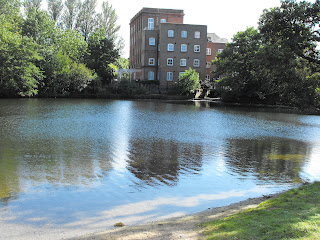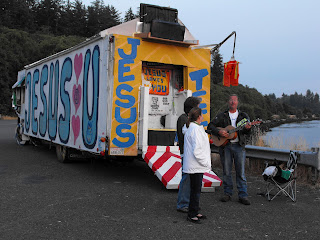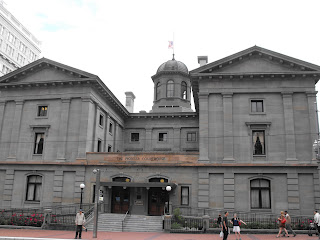One of the reasons for church growth, I would strongly maintain, is the desire by members to reach non-members and to see them finding faith in Christ Jesus. It has been said that the church primarily exists for its non-members. The evangelical type of church seems to be far more comfortable with evangelism and "winning souls" than the liberal and high church types. The evangelicals make sharing their faith a theological imperative. Time, energy and money are geared to outreach, evangelism and bringing people into their churches for conversion.
It seems to me, having been involved in a High Anglian church in North London (where I was christened and confirmed many years ago) that liberal Anglicanism is rather tentative about conversion processes and overt forms of evangelism. I have discovered that some United Reformed Churches of a liberal persuasion have now closed and have little hope of regaining the lost ground. They have lost, in this context, their means of reproduction!
I ought to define "liberal", because some theologians of an evangelical persuasion wish to re-define the term and claim it as a positive step forward. By liberal churches, I mean churches that have a low view of Holy Scripture in that they would not regard the Bible as the reliable rule of faith, but a flawed set of texts that are provisional and not binding in matters of faith, morals and church practice. The liberal churches are and have been, in my personal view, very highly concessive to modernism, existentialism, relativistic post-modernism, and pluralism. Embracing tolerance they have sometimes been very intolerant of definite doctrinal positions within evangelicalism and neo-puritanism.
The problem that these liberal churches have had in the late 20th century is a "shifting sand theology", changeable, with trendy winds of doctrine embracing secular philosophies and some humanistic ideas. In doing so they have appeared to be wishy washy. dated and sometimes inaccessible. The Sea of Faith group seemed all at sea, and Don Cupitt and his followers were nearer to a form of Buddhism than Christianity. They certainly did not have any experience a personal faith in the divine Son of God, Christ Jesus the Lord. They have sustained intellectual credibility and cultural elitism, which have given them appeal and significance. The High Anglican church that I attended looked down on the evangelical and non-conformist church culture, music, architecture and socio-historical heritage. I still find the same attitude exists today, that the low church is regarded as unsophisticated, and theologically, socially and culturally inferior.
The "Liberal Jesus" was presented as no miracle worker but a teacher of sanctified good manners, really no better than the meek, mild and rather effete "Sunday School Jesus". People followed a plastic, synthetic Jesus.
This, of course, has been a vast area of theological discussion and debate in the quest and identification of the historical Jesus, the Jesus of history and the Christ of faith (which some separate).
A few years ago I observed a High Church event at a small village church in central Essex. The people involved in this ceremony had no connection with the local community. Outsiders were not at all welcome to attend. It was a very private service; some would call it "smells and bells" and "pomp and circumstance". I was, at the time, walking along the Essex Way with an art historian, who commented on the High Anglican procession's quaintness and theatrical quality. I suppose that this event and Christianity have something in common, but on this occasion as we saw the passing procession it was hard to see. Is this a religion of the neo-pharisee, "I thank Thee that I am not as other men"? This is so foreign to the evangelical type of Christianity, that is keen to share its faith, explain its beliefs and bring outsiders into the fold. I admit, however, that there can be a pharisaical spirit within evangelicalism, a holier than thou attitude, and a disconcerting bigotry.
I have at times attended High Church services in central London. The use of Latin and chanting was fascinating. They were undoutedly culturally stimulating services, but they were probably inaccessible and, to some extent, hard to understand for many unchurched people. The High Liberal Anglican churches do appeal to people with their choral music, well organized social and cultural events, dramatic liturgy, beautiful church buildings with magnificent artwork, images and architecture, and using elaborate costumes (robes, cassocks, stoles etc.). The services are often, to my way of thinking, a very acquired taste indeed.
The High and Liberal Anglicans known to me have posed some important questions.
When conversion is mentioned, what are people converted to?
What difference does their conversion make to their way of life and the quality of the lives of those around them?
What kind of converts are they?
What are the social implications of the Gospel?
How do Gospel values challenge the cosy complacency of middle class bourgeois Christian church life?
Do evangelical churches operate within a comfortable cocoon of safety and security?
For me, the Christian church is a hospital that brings sinners to life and health. It should never become primarily a gymasium for the spiritually super fit, or an elite club for the culturally and intellectually snobbish.













































































